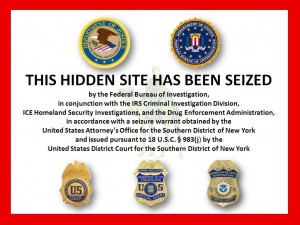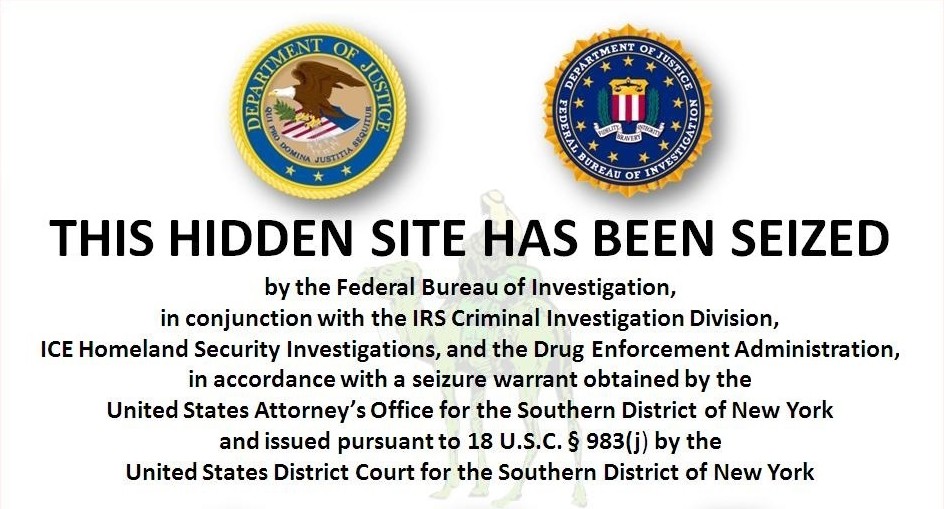Warning: Contains Breaking Bad Spoilers
For those of us that watched Breaking Bad, the recent bust of the Silk Road online illicit trading network seems like a bit of déjà vu. The similarities between the AMC show’s shady underworld and the illicit online trading hub are quite surprising. Both revolve around secretive, drug-driven transactions. Both involve a clever mastermind with self-justifying tendencies and an alter-ego alias. And just like Walter White’s tale, the story of the Silk Road is quite a troubling one, with no semblance of a happily-ever-after ending in sight.
The shutdown of the Road (as its Reddit fans call it) came about as a result of the arrest of Ross Ulbricht, who is thought to be the website’s administrator. The arrest was the culmination of years of DEA and FBI investigations into the illegal trading sites that permeate the Deep Web – a new and frequently unacknowledged frontier of the ongoing War on Drugs.
In layman’s terms, the Deep Web is a nickname for parts of the Internet that cannot be accessed through regular search browsers. Certain software permit users to enter this region of the web in anonymity, which is helpful for people living in countries with censored web access and for trading sensitive information between governments and individuals. However, the secrecy of the Deep Web has also made it appealing for many sites that operate on the shadier side of the law.
Among these, the Silk Road was a real-world analogue of Breaking Bad kingpin Gus Fring’s multinational meth company in terms of size and reach. It provided a platform for vendors to sell anything, legal or otherwise, as long as their merchandise was not intended to “harm or defraud” – a pretty vague proviso in the context of an illegal trading hub. Drugs (almost) as pure as Walt and Jesse’s Blue Sky were bought and sold by hundreds of thousands of anonymous users worldwide.

Creative Commons, Wikimedia Commons.
One of the groundbreaking aspects of the Road and other Deep Web trading sites is that they allow users to tap into a globalized illicit economy and engage in transactions in much the same way as in legal global trade, bypassing the violence and uncertainty of more traditional illegal transactions. Federal agents who bought drugs on the site during investigations would get packages from across the world, containing vacuum-sealed drugs produced by individuals who could not be tracked.
Gus Fring had to use the multinational Madrigal Inc. to gain access to the global market. Mr. White and those that followed counted on drug pushers in the Czech Republic for product distribution. The Silk Road allowed any street-level producer to connect to consumers thousands of miles away, with the only price being the 10% transaction fee the site charged. While law enforcement is still restricted by national borders and the difficulties of international cooperation, Silk Road buyers and sellers had dramatically increased options while enjoying the security of anonymity. The ease of these commercial interactions turned the site into a $1.2 billion industry over the span of two and a half years.
Mr. White once remarked that “a company so large that it could be listed on the NASDAQ would go belly up” if something were to happen to him. This is the reality that Ross Ulbricht, the alleged mastermind in charge of the Silk Road, now faces.
Ulbricht, a 29-year-old San Francisco resident with a graduate degree in physics (insert appropriate Breaking Bad .gif here) looks nothing like a millionaire drug kingpin. His brother, Travis Ulbricht, has described him as an “exceptionally bright and smart kid,” saying “he’s always been upstanding and never had any trouble with the law that I knew of.” A former roommate of Ulbricht is even convinced that the charges are wrong. As ordinary as young Ulbricht may have seemed to his family and friends, he allegedly had his own Heisenberg-like alias in the online underworld: “Dread Pirate Roberts.”
Walt chose the name Heisenberg in reference to a scientist whose work he admired (see Heisenberg’s uncertainty principle). Ulbricht chose his handle according to the name’s tradition – Dread Pirate Roberts is a hereditary title passed on from one character to another in the movie The Princess Bride. Tellingly, the Silk Road’s manager once mentioned that he was not the first person to run the site.
The most relevant parallel between Heisenberg and Dread Pirate Roberts, however, was the way in which they justified their actions. Just as Heisenberg believed that he was working for his family’s benefit, Pirate Roberts saw himself as a libertarian revolutionary, maintaining a space for free trade beyond the regulatory reach of government institutions. The mastermind behind the Road would often write anarcho-capitalist blog posts on his website’s community forums, decrying governments’ systematic use of violence and state repression of individual freedoms. “What we’re doing isn’t about scoring drugs or ‘sticking it to the man,’” said the online entrepreneur in an anonymous interview with Forbes. “It’s about standing up for our rights as human beings and refusing to submit when we’ve done no wrong.”
Anybody who knows anything about the Internet could guess that this made him quite popular.
Ulbricht’s typical civilian persona was also devoted to libertarian principles. He was a member of Penn State’s College Libertarians Club and supported Ron Paul’s presidential campaign. After leaving the university, Ulbricht decided to move away from physics and study economic theory to help “abolish the use of coercion and aggression against mankind.”
As Ross Ulbricht’s pronouncements indicate, the story of the Silk Road is tied in many ways to the ongoing politicization of Internet access and the personal freedoms it provides. The Road seems to have gained popularity partly because its official stance dovetailed nicely with the political ethos of the Internet age, which has spread amongst tech-savvy youth around the world who feel that government prohibition regimes do not reflect their interests.
Historically, illegal trade hubs have sustained themselves by adopting a revolutionary political veneer, but it’s the profit margins that really run the show. In Breaking Bad’s finale, Mr. White tells his wife the real reason for his involvement in the meth business: “I did it for me. I liked it. I was good at it.” The great Heisenberg was just another criminal, with only an illusion of a moral high ground to cling to. Some might see Dread Pirate Roberts as a hero, but he is essentially no different. They both sought the thrill of being the best in their field. Internet-driven laissez-faire convictions may be starting to influence to physical world, but they are also just another tool in the illegal trader’s arsenal. In Breaking Bad, meth stays on the market long after Mr. White leaves the business. So too will young entrepreneurs keep creating new Silk Roads and exploring new global frontiers of illicit trading.
